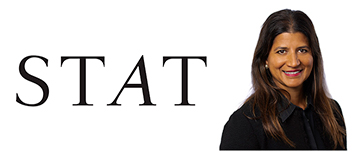January 11, 2023
No more business as usual: changing the pattern of outbreak response and ensuring future epidemic preparedness
Reflecting on the Ebola Sudan outbreak in Uganda, Swati Gupta suggests a global solution to prepare for emerging infectious disease outbreaks.
On the heels of Uganda declaring the end of the Ebola disease outbreak caused by Sudan ebolavirus, Swati Gupta, vice president and head of emerging infectious diseases and epidemiology at IAVI, shares her expert opinion in STAT News on how the global health community can better prepare not just for the next Ebola outbreak but for other future emerging infectious disease outbreaks.

Gupta underscores the need to develop well-managed stockpiles of unlicensed vaccine candidates that target the Sudan ebolavirus and other known viral threats so they can be deployed in clinical trials during outbreaks. While it is great news that the outbreak in Uganda only lasted four months and was quickly controlled, the planned ring vaccination trials were unable to take place. The WHO’s planned ring vaccination clinical trial for promising vaccine candidates from IAVI, the Sabin Vaccine Institute, and the University of Oxford had to be canceled because as Swati Gupta explains, “with any infectious disease, the pathogen must be circulating to show that the vaccine prevents illness. In spite of the speed of this response, it wasn’t possible to get the vaccine candidate in country quickly enough to demonstrate its efficacy.”
Gupta highlights the demonstrated success of stockpiling licensed Ebola vaccines and suggests that this life-saving approach to preparedness should be replicated for vaccine candidates and products in development.
“Business as usual will not allow a better state of readiness in the global health security agenda, and communities and health systems will certainly not be better prepared if global health stakeholders don’t apply lessons learned from past epidemics in a more thoughtful and deliberate way. Funders, governments, global health agencies, and nonprofit and for-profit product developers need to work together to muster adequate funding, resources, and innovative partnership models to collectively prepare in between outbreaks.”
Read the full opinion piece in STAT News.